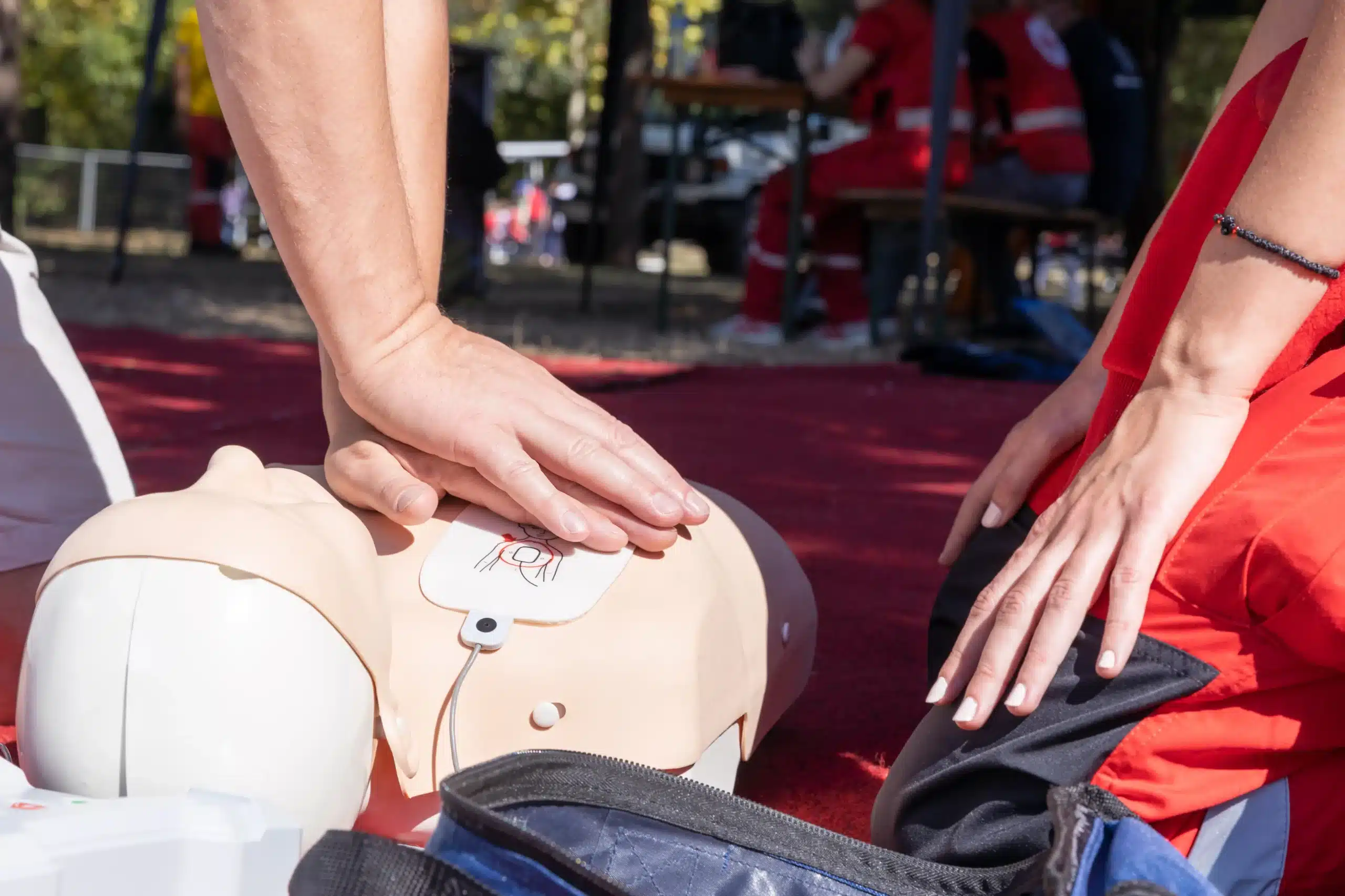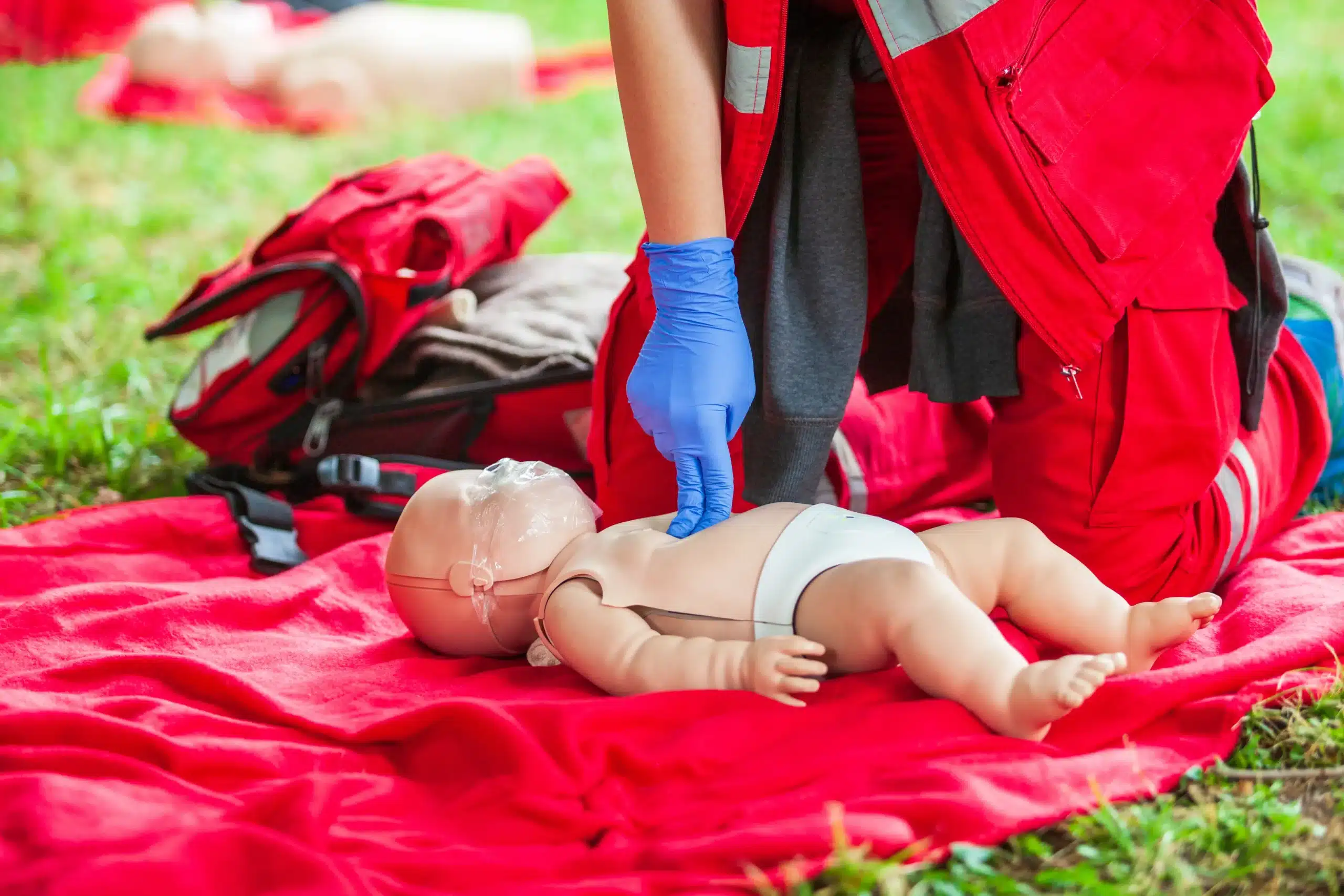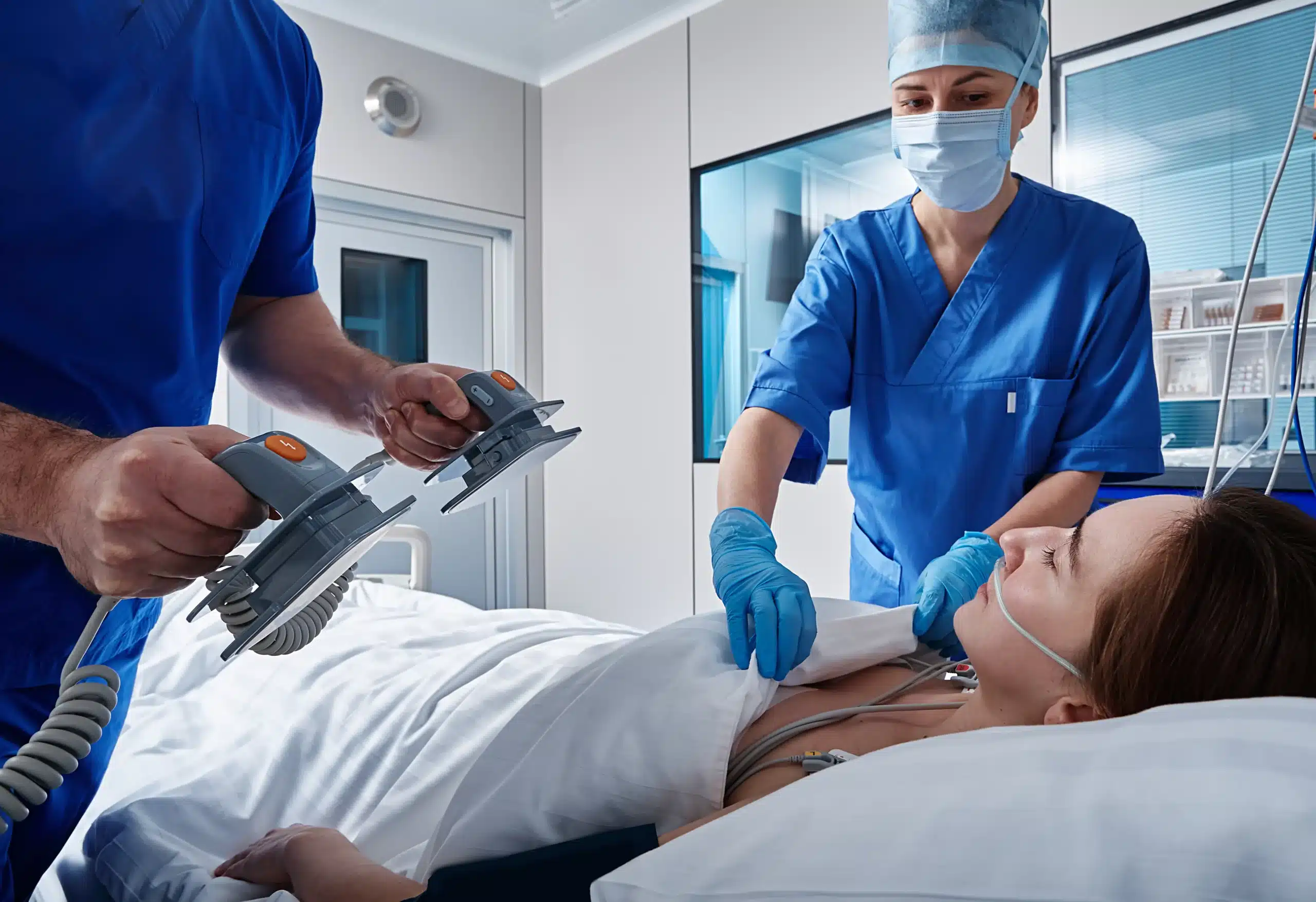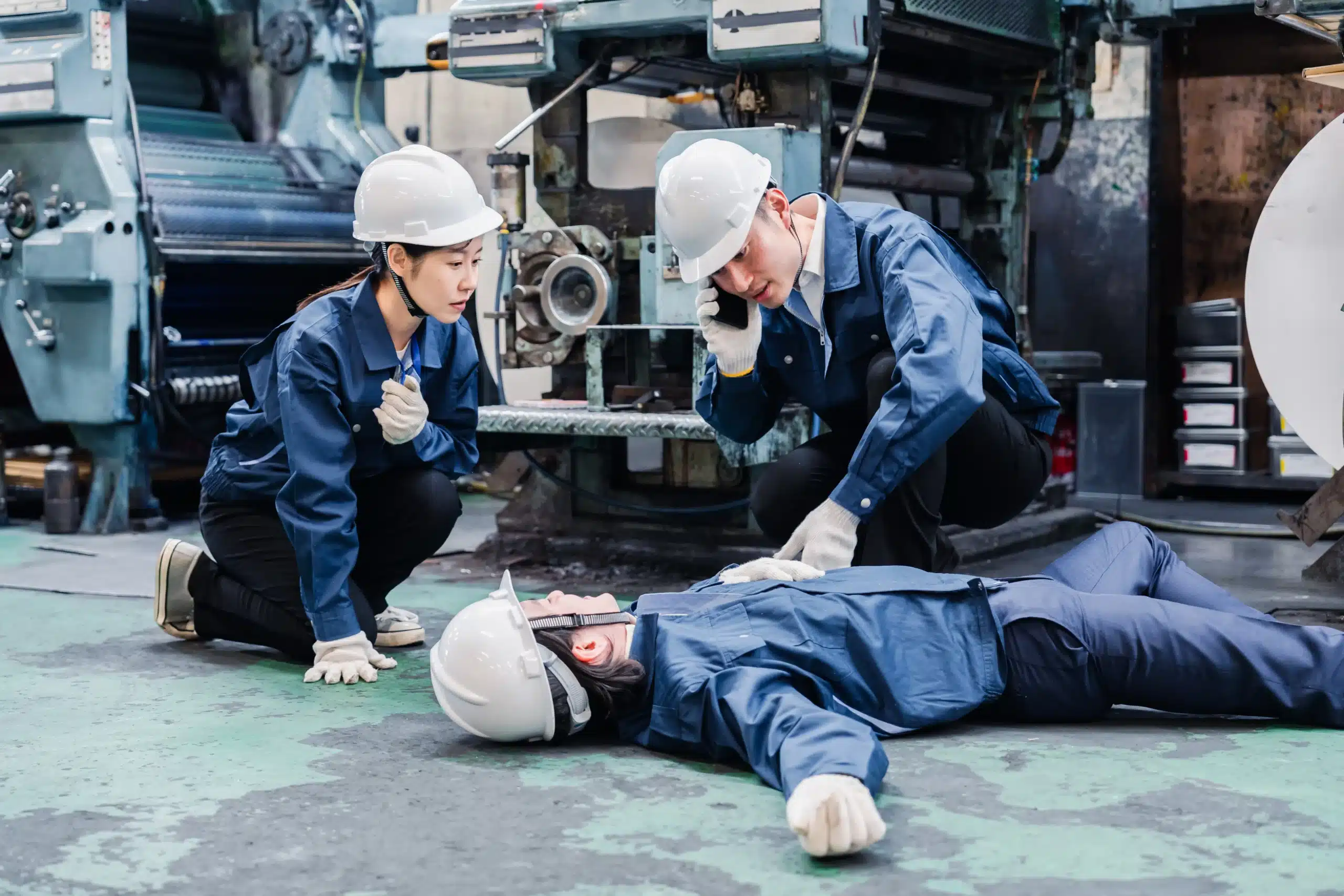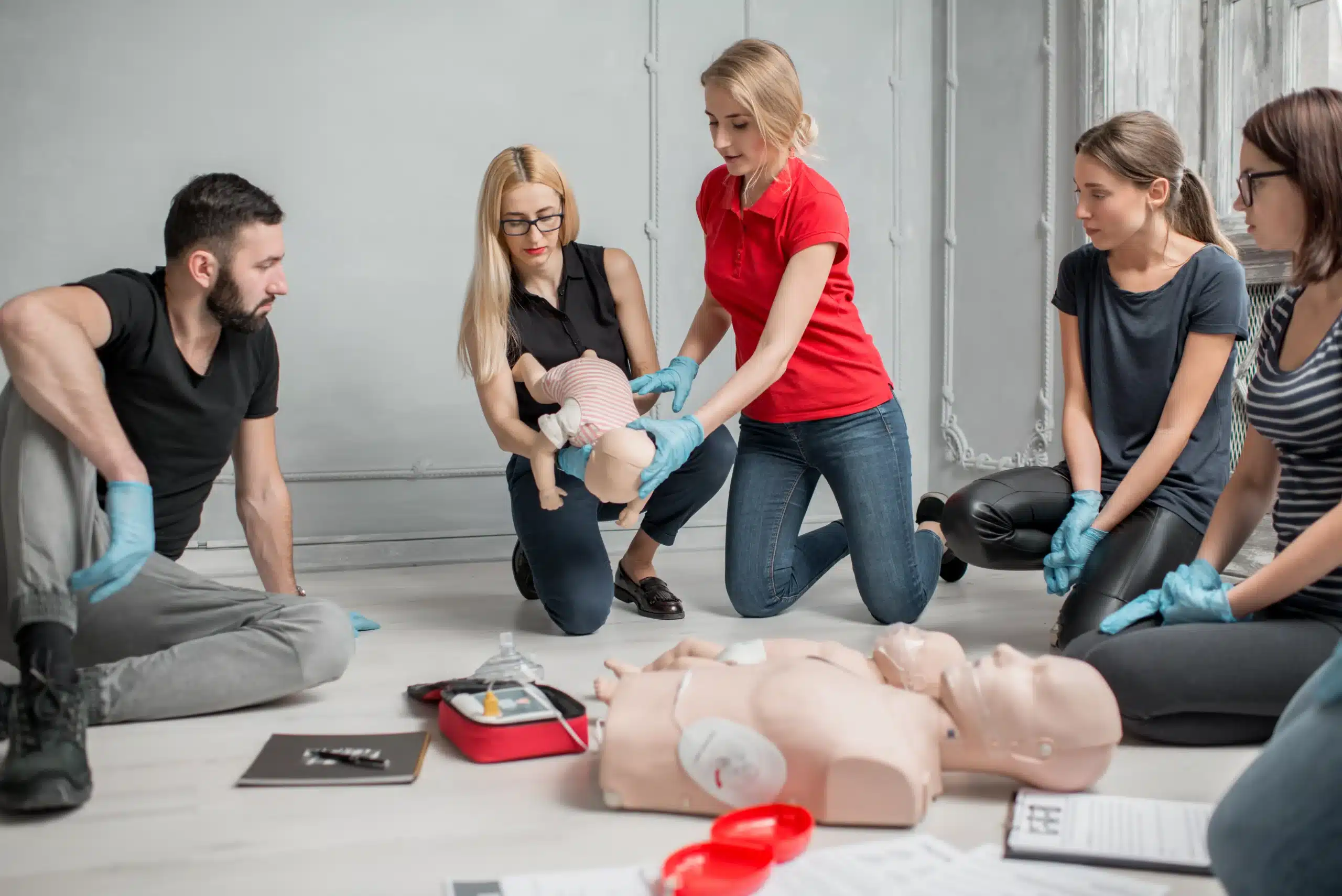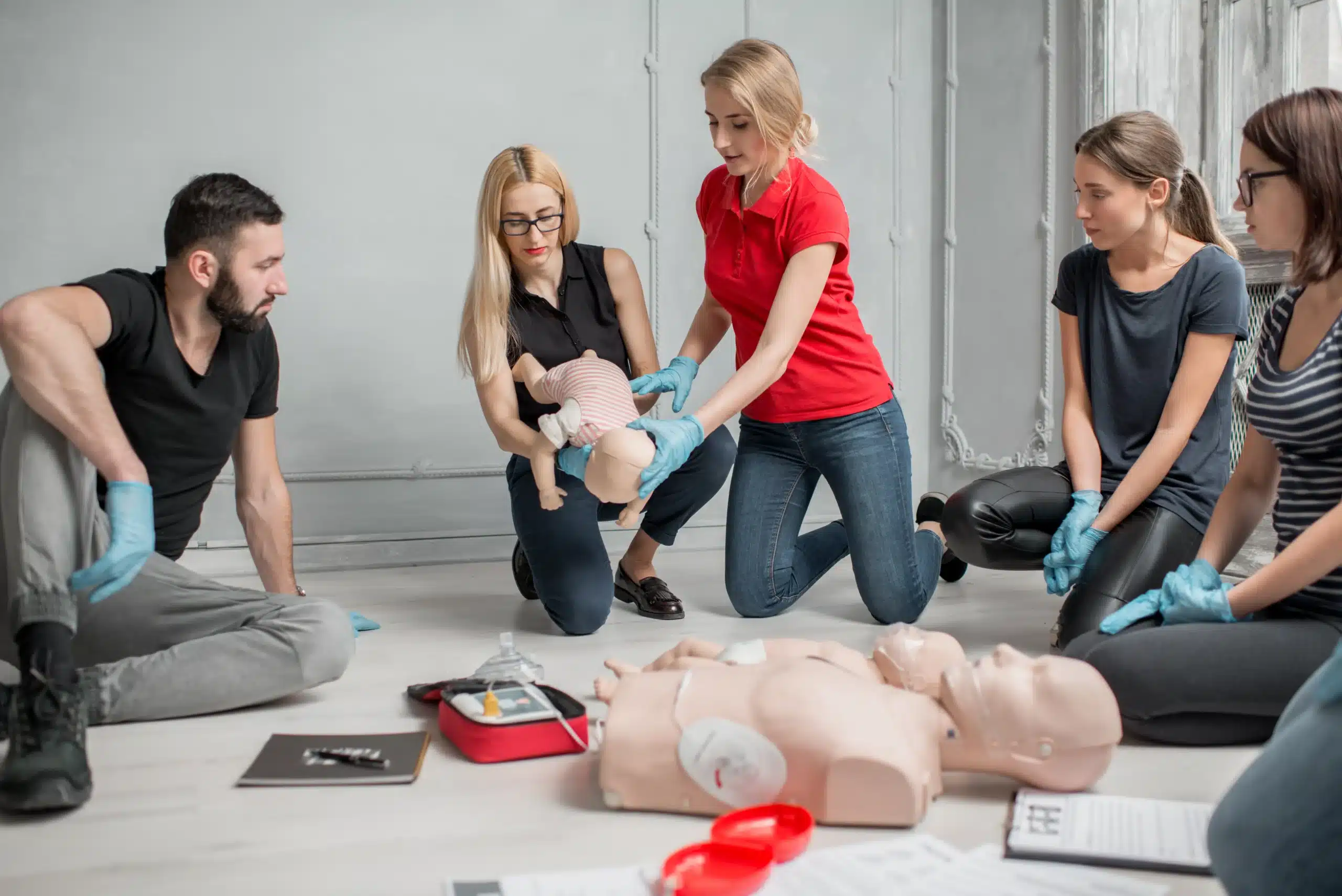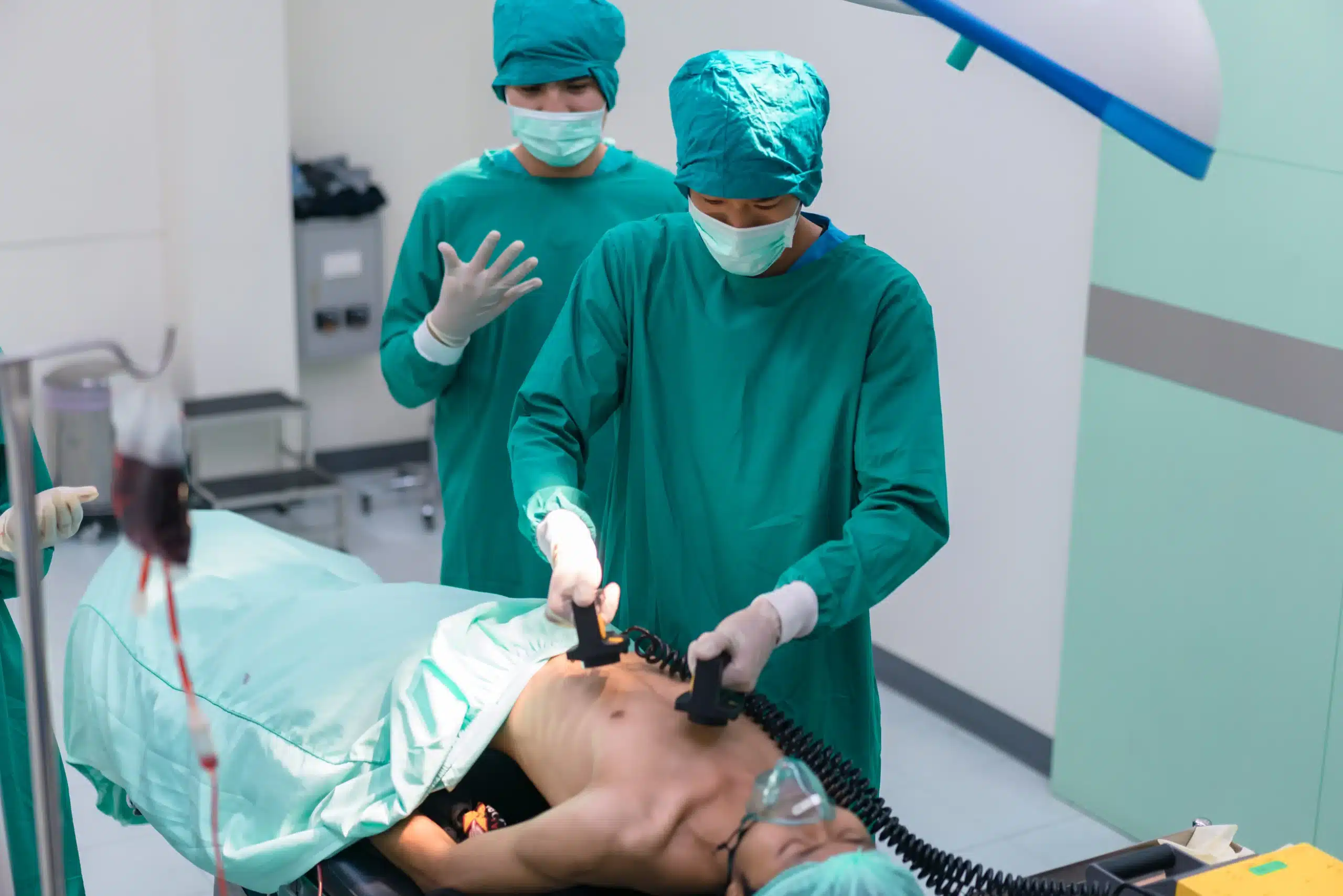The arrival of a newborn should be a joyous occasion, but sometimes, complications arise that require immediate, expert care. As a healthcare professional, you know that every second counts in those critical moments. The Neonatal Resuscitation Program (NRP) empowers you to provide the best possible care to newborns in distress. If you’re seeking NRP in Milpitas, this guide will provide you with valuable insights into the program, its benefits, and how to find the right training in your area. We’ll cover everything from course structure and costs to the renewal process, ensuring you have all the information you need to pursue or maintain your NRP certification.
Key Takeaways
- NRP certification equips healthcare providers with life-saving skills: This training is essential for professionals involved in newborn care, enabling them to respond effectively to emergencies and improve outcomes. Look for programs offering a blend of online learning and hands-on practice.
- Finding the right NRP course involves researching various providers and considering key factors: Explore options in your area, such as Milpitas CPR Classes and Bay Area CPR. Evaluate factors like cost, schedule flexibility, and instructor experience to make an informed decision.
- Prepare effectively by understanding the NRP course structure and utilizing available resources: Familiarize yourself with the blended learning approach, which combines online modules and in-person skills assessments. Create a study plan and gather necessary materials to maximize your learning experience. Remember the in-person component is essential for certification.
What is the Neonatal Resuscitation Program (NRP)?
What is NRP?
The Neonatal Resuscitation Program (NRP) equips healthcare professionals with the knowledge and skills to resuscitate newborns. Developed by the American Academy of Pediatrics (AAP) and the American Heart Association (AHA), these courses offer evidence-based training grounded in the latest research and best practices. You can find more information about NRP certification classes offered by Milpitas CPR Classes.
Why is NRP Crucial for Healthcare Professionals?
NRP certification is essential for any healthcare provider involved in newborn care immediately after birth, especially those who may need to perform neonatal resuscitation. This includes physicians, nurses, respiratory therapists, and other medical professionals. Having this certification prepares professionals to handle emergencies, leading to improved outcomes for newborns. In Milpitas, skilled NRP providers are critical for ensuring infant health and well-being. Local NRP classes play a vital role in maintaining these high standards of care. Milpitas CPR Classes also emphasizes the importance of NRP training for local healthcare providers, highlighting how these skills directly contribute to positive outcomes for newborns.
Find NRP Certification Classes in Milpitas
Finding the right Neonatal Resuscitation Program (NRP) certification course is the first step toward gaining these essential skills. Luckily, Milpitas and the surrounding areas offer several options to fit your needs.
Available Providers and Class Formats
NRP certification typically involves a blend of online coursework and in-person skills sessions. This hybrid approach lets you learn the material at your own pace and then demonstrate your proficiency in a hands-on environment. Many providers in the area offer this combined format, making it convenient to pursue your NRP certification.
Milpitas CPR Classes
Milpitas CPR Classes offers NRP certification through Safety Training Seminars, a woman-owned American Heart Association Training Center. They emphasize the program’s importance, highlighting its joint oversight by the American Academy of Pediatrics (AAP) and the American Heart Association (AHA). This collaboration ensures your training is comprehensive and reflects the latest evidence-based practices in neonatal resuscitation. Serving Milpitas, San Jose, and Santa Clara, their central location makes it accessible for those in the greater Silicon Valley area.
Bay Area CPR
Bay Area CPR provides NRP courses and renewal options in several locations, including Milpitas, San Francisco, and Concord. Their program includes online coursework and a three-hour in-person skills check. They clearly outline their pricing structure, which covers the online class, skills testing, and your NRP card. This transparency makes it easy to understand the total cost of certification.
Safety Training Seminars
Safety Training Seminars, the provider for Milpitas CPR Classes, also offers NRP courses independently. They pride themselves on providing competitive pricing for their NRP courses in Northern California and even offer a price-match guarantee. This commitment to affordability makes high-quality training accessible to a wider range of healthcare professionals.
Other Local Training Centers
Beyond these specific providers, the broader Bay Area offers various NRP courses through different institutions. This variety ensures healthcare providers have numerous options for obtaining NRP certification, contributing to a well-trained healthcare workforce in the region. A quick online search for “NRP classes near me” can reveal additional training centers and programs.
Explore NRP Course Structure and Costs
Understanding the NRP course structure and associated costs is essential for planning your training. This section breaks down the program’s components, duration, and pricing to help you prepare.
Online Components and In-Person Skills Assessments
The NRP certification blends online learning with hands-on skills practice. You’ll start with online coursework covering the theoretical foundations of neonatal resuscitation. This online component allows you to learn at your own pace. You’ll then demonstrate your skills in person. Milpitas CPR Classes explains that the program includes both online learning and an in-person skills test. This combined approach ensures you grasp both the concepts and practical application necessary for effective neonatal care.
Program Duration
The NRP course is designed to be efficient without compromising thoroughness. The online portion takes approximately three hours to complete, offering flexibility to fit your schedule. You’ll then participate in a three-hour in-person skills test. Milpitas CPR Classes recommends completing the online modules at least a week before your skills assessment. This allows ample time to absorb the material and prepare for practical application.
Pricing and Affordability
The cost of NRP certification is a practical consideration. Bay Area CPR offers the complete program—including the online course, skills testing, and NRP card—for $280. They also highlight their commitment to providing affordable training and offer a price match guarantee, aiming to have competitive prices in Northern California.
Register for NRP Classes in Milpitas
How to Register
Ready to develop essential skills in neonatal care? Registering for NRP certification in Milpitas is simple. Find a local training center, such as Milpitas CPR Classes, that offers courses aligned with American Heart Association guidelines. These courses equip healthcare professionals with the knowledge and techniques needed for effective neonatal resuscitation.
Course Frequency
With NRP classes offered approximately 16 times per month, you’ll have numerous opportunities to find a convenient time for training. This frequent course schedule makes it easier for busy healthcare providers to prioritize this vital training.
Flexible Scheduling
The NRP certification process combines online learning with in-person skills testing to accommodate various schedules. Complete the online portion at your own pace, ideally at least one week before attending the in-person skills evaluation. This blended learning format, also described by Bay Area CPR, allows you to study the material conveniently and then demonstrate your practical skills.
Get and Renew NRP Certification
Prerequisites
The Neonatal Resuscitation Program (NRP) is designed for healthcare professionals involved in newborn resuscitation. This includes physicians, nurses, advanced practice nurses, certified nurse midwives, licensed midwives, respiratory therapists, and other professionals providing direct care during this critical time. The American Academy of Pediatrics offers more information on NRP.
Steps to Certification
Becoming NRP certified involves a three-step process. You’ll begin with online learning, followed by in-person practice and testing. Milpitas CPR Classes offers same-day certification upon successful completion of these steps. This blended learning approach allows you to learn the material at your own pace and then demonstrate your skills in a real-world setting. Bay Area CPR also provides a similar program structure.
Renewal Process
Your initial NRP certification is valid for two years. To renew your certification, you must complete the online portion of the NRP Provider Course before your expiration date. After finishing the online component, attend an instructor-led event to renew your credentials. Resources like Vivian Health offer helpful information on the renewal process. Recertification ensures your skills and knowledge remain current, allowing you to continue providing high-quality care. You’ll also receive continuing education credits upon completion. ACLS provides details on the number of credits available for initial certification and recertification.
Prepare for Your NRP Course
Getting ready for your NRP certification requires a focused approach. This section covers key aspects of preparation, from gathering your study materials to understanding the course structure and avoiding common misconceptions.
Study Materials and Resources
The NRP curriculum emphasizes a blended learning approach. You’ll begin with online lessons covering foundational knowledge, encompassing lessons 1 through 4 of the textbook. This online component, available through the American Academy of Pediatrics (AAP), verifies your understanding of core concepts before you move on to the practical skills portion. The NRP program offers flexibility, catering to various healthcare professionals with different learning styles and schedules.
Tips for Success
A solid study plan is essential for NRP certification. Complete the online exam, purchased separately through the AAP, before your in-person skills test. This allows you to concentrate on the hands-on techniques during the practical session. Creating a study schedule with clear goals is also beneficial. Use the NRP textbook and any supplementary resources to reinforce your learning. CPR123 recommends completing the online portion first, and IntelyCare offers helpful advice on creating effective study plans.
Common Misconceptions
One frequent misunderstanding is the idea of completing NRP certification entirely online. While the initial learning is online, the NRP requires an essential in-person component for skills validation. You’ll need to demonstrate your proficiency in a practical setting. Another misconception revolves around course fees. The AAP itself doesn’t charge for materials or provider cards. The institution providing your training sets the fees, so inquire directly with them for specific pricing. IntelyCare clarifies this fee structure.
Benefit from NRP Certification
Earning your NRP certification offers a range of benefits, from career advancement to improved patient care. It’s a valuable investment in your professional development and your ability to provide critical care for newborns.
Career Advancement
NRP certification is a nationally recognized credential demonstrating your expertise in neonatal resuscitation. It’s a powerful addition to your resume, signaling to potential employers your commitment to high-quality patient care. Many hospitals and healthcare facilities require NRP certification for roles in neonatal intensive care units (NICUs), labor and delivery, and other areas involving newborn care. Holding this certification can open doors to more advanced positions and greater responsibilities, ultimately enhancing your career trajectory.
Improved Patient Care
For healthcare providers in Milpitas, San Jose, and Santa Clara, NRP certification equips you with the skills to confidently manage neonatal emergencies. The training emphasizes a standardized approach to resuscitation, ensuring consistent and effective care for newborns in distress. This preparedness translates to improved patient outcomes, increasing the chances of survival and reducing the risk of long-term complications. By mastering the techniques taught in NRP courses, you’ll be better prepared to handle the challenges of neonatal resuscitation and contribute to a higher standard of care. The American Heart Association’s involvement in NRP training further underscores the program’s commitment to evidence-based practices.
Addressing Healthcare Challenges
NRP certification plays a vital role in strengthening the healthcare system’s response to neonatal emergencies. By ensuring that healthcare professionals have the necessary skills and knowledge, NRP courses contribute to a more robust and prepared workforce. Understanding the availability of NRP classes and accessing them empowers healthcare providers to take proactive steps in their professional development. The collaborative oversight of the Neonatal Resuscitation Program by the American Academy of Pediatrics (AAP) and the American Heart Association (AHA) ensures that the training remains comprehensive, up-to-date, and aligned with the latest research in neonatal care.
Choose the Right NRP Provider
Choosing the right Neonatal Resuscitation Program (NRP) provider is crucial for gaining the skills necessary for effective neonatal care. With various options available, consider factors that align with your learning style, schedule, and budget.
Factors to Consider
The American Academy of Pediatrics (AAP) and the American Heart Association (AHA) jointly oversee the NRP, ensuring comprehensive, evidence-based training. Look for providers offering courses adhering to the latest AAP and AHA guidelines. Consider factors like instructor experience, class size, and hands-on practice opportunities. Smaller classes often allow for more personalized instruction and interaction with the instructor. Learn more about NRP Certification.
Unique Local Provider Features
In Milpitas, NRP-trained healthcare providers are better prepared for neonatal emergencies, improving outcomes for newborns. Milpitas CPR Classes offers this essential training. Safety Training Seminars provides competitively priced NRP courses with a price-match guarantee. For more information on pricing and courses, visit Bay Area CPR.
Make Informed Decisions
NRP classes are essential for healthcare professionals like nurses, midwives, and doctors involved in newborn care. These classes are readily available in the SF Bay Area. CPR CPR offers various NRP courses throughout the region. Before choosing a provider, research different options, compare pricing, and read reviews. An informed decision ensures you receive high-quality training.
See NRP’s Impact on Neonatal Care
Healthcare providers trained in neonatal resuscitation play a vital role in ensuring newborns receive immediate and effective care during emergencies. This specialized training equips them to handle a range of critical situations, directly impacting the health and well-being of these vulnerable infants. Let’s explore the profound impact of the Neonatal Resuscitation Program (NRP).
Immediate Benefits
The immediate benefits of NRP training are clear. Healthcare professionals with NRP skills are better prepared to respond to neonatal emergencies, leading to improved outcomes for newborns. This preparedness translates to quicker interventions, reduced complications, and a greater chance of survival for infants facing respiratory distress, cardiac events, or other critical conditions. The ability to provide prompt and skilled care during these crucial moments can significantly impact a newborn’s long-term health. For healthcare providers in Milpitas, NRP certification classes are available to develop these essential skills.
Long-Term Improvements
Beyond the immediate response, NRP training contributes to long-term improvements in neonatal care. By ensuring healthcare providers have access to comprehensive and up-to-date training, NRP strengthens the overall quality of care provided to newborns. This commitment to ongoing education and skill development helps create a healthcare system better equipped to support the healthy development of infants and address the unique challenges they may face. Bay Area CPR offers NRP courses and renewal options for healthcare professionals looking to expand their expertise.
Enhanced Teamwork
Effective neonatal resuscitation often requires a coordinated team effort. NRP training fosters improved communication and collaboration among healthcare professionals, creating a more cohesive and efficient response during emergencies. The program emphasizes teamwork and clear communication strategies, enabling providers to work together seamlessly. The joint oversight of the NRP by the American Academy of Pediatrics (AAP) and the American Heart Association (AHA) ensures the training is comprehensive and evidence-based, further strengthening the quality and consistency of care provided by NRP-certified professionals.
Overcome NRP Certification Challenges
Getting your NRP certification is a worthwhile pursuit, but it’s not without its challenges. Let’s break down some common roadblocks and how to get past them.
Common Obstacles
One of the biggest hurdles is simply understanding the process. It can feel overwhelming, especially when you’re already juggling work and other commitments. Knowing where to find reliable information is key. Milpitas CPR Classes emphasizes the significance of NRP training for improving neonatal care in Milpitas. Healthcare providers with NRP skills are better equipped to handle neonatal emergencies, leading to better outcomes for newborns.
Available Support
Thankfully, there are resources available to help. Several organizations offer support and guidance throughout the certification process. Affordability is often a concern, but Bay Area CPR offers a price-match guarantee on their NRP courses. The American Academy of Pediatrics (AAP) and the American Heart Association (AHA) jointly oversee the NRP program, ensuring a high standard of training.
Continuous Improvement
Even after you’re certified, staying up-to-date with the latest advancements in neonatal resuscitation is crucial. Regular NRP classes are essential for maintaining proficiency and providing the best possible care. Look for programs that incorporate simulation-based training, like those offered by Campbell CPR Classes, as this hands-on experience builds confidence and competence. Continuous learning is a cornerstone of effective healthcare.
Related Articles
- Why CPR is Important in Healthcare – Milpitas CPR Classes
- NRP Certification Classes in Milpitas, CA – Milpitas CPR Classes
- CPR Certification in San Jose: Your Complete Guide – Milpitas CPR Classes
- Understanding the Psychological Recovery for CPR Survivors
- The Importance of Workplace CPR and First-Aid Training
Frequently Asked Questions
What exactly does NRP certification entail?
NRP certification involves a combination of online coursework and an in-person skills assessment. The online portion covers the fundamental principles of neonatal resuscitation, allowing you to learn at your own pace. The in-person assessment evaluates your practical skills and ability to apply those principles in a simulated environment. This blended approach ensures you have both the knowledge and the hands-on experience necessary for effective neonatal care.
Where can I find NRP classes near me?
Several providers offer NRP certification in the Milpitas area, including Milpitas CPR Classes, Bay Area CPR, and Safety Training Seminars. A quick online search for “NRP classes near me” can also help you find additional training centers and programs in your specific location. When choosing a provider, consider factors like cost, schedule flexibility, and the opportunity for hands-on practice.
How much does NRP certification cost?
The cost of NRP certification varies depending on the provider and the specific program. It’s essential to inquire directly with the training center for accurate pricing information. Some providers, like Bay Area CPR, offer transparent pricing structures that include the online course, skills testing, and your NRP card. Others may have separate fees for different components of the program.
How long does NRP certification last, and how do I renew it?
NRP certification is typically valid for two years. To renew your certification, you’ll need to complete the online portion of the NRP Provider Course again before your current certification expires. After completing the online component, you’ll attend an instructor-led event to renew your credentials and receive your updated certification card.
What are the career benefits of having NRP certification?
NRP certification is a valuable credential for healthcare professionals involved in newborn care. It demonstrates your specialized skills in neonatal resuscitation and can enhance your career prospects. Many hospitals and healthcare facilities require or prefer NRP certification for positions in neonatal intensive care units (NICUs), labor and delivery, and other areas involving newborn care. Having this certification can open doors to more advanced roles, greater responsibilities, and potentially higher earning potential.
